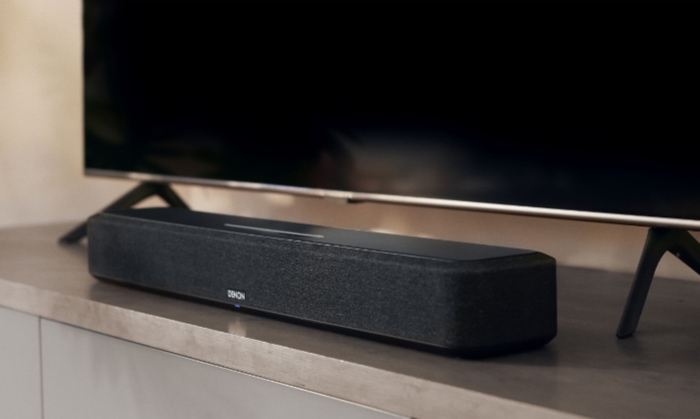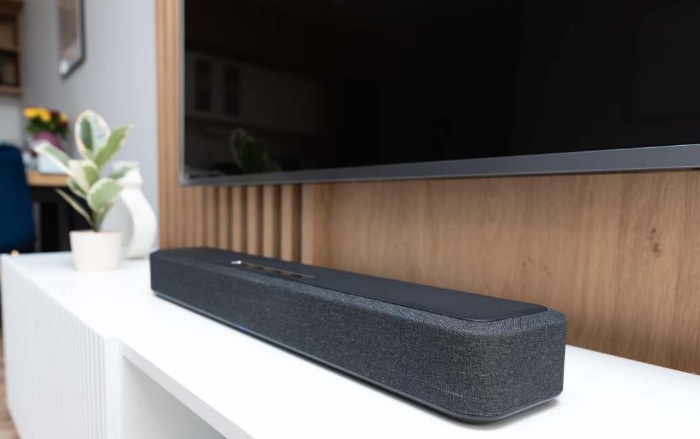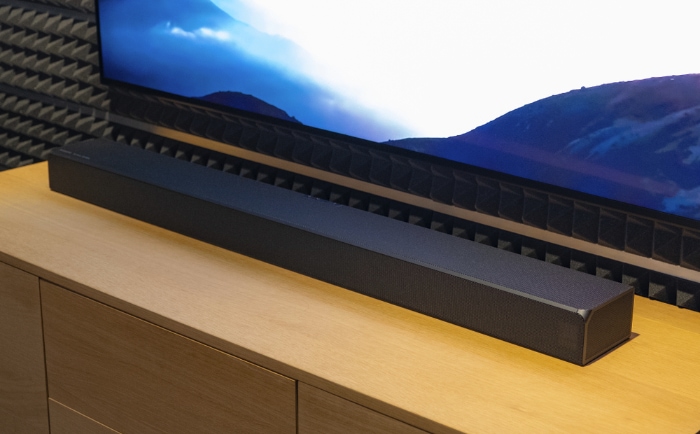Are Soundbars Worth It? The Audio Upgrade Unpacked

Soundbars have swiftly become a popular choice for enhancing home entertainment, merging sleek design with impressive audio capabilities. This transformation from bulky, complex sound systems to the streamlined simplicity of soundbars marks a significant shift in how we experience movies, music, and games at home.
Yet, as with any technological advancement, it’s natural to question the real value behind the hype. Are these devices truly the upgrade your living room needs, or are they just a stylish addition with minimal impact?
The Benefits of Choosing a Soundbar
Soundbars have rapidly become a go-to solution for those looking to elevate their home entertainment without the clutter or complexity of traditional setups. Their rise in popularity is no fluke; it’s the result of blending form, function, and affordability into one compact package.
Sleek Design Meets Modern Aesthetics
Gone are the days when enhancing your home audio meant installing bulky speakers that dominate your living space. Soundbars offer a minimalist, stylish solution that fits seamlessly under your TV or on a wall.
Their slim profile doesn’t just save space; it also complements the modern aesthetics of contemporary homes. This blend of design and functionality ensures your living room stays chic without sacrificing audio quality.
Easy Setup for Everyone
One of the most appealing aspects of soundbars is their ease of setup. Forget the days of navigating a maze of wires and settings.
Most soundbars can be connected to your TV with a single cable, or even wirelessly, making the process hassle-free. This simplicity extends to everyday use, with straightforward controls and user-friendly interfaces that ensure everyone can enjoy superior sound without needing a manual.
Significant Audio Quality Improvement
Perhaps the most transformative feature of soundbars is their ability to dramatically enhance your listening experience. Compared to the tinny and often underwhelming sound emitted by standard TV speakers, soundbars provide a rich, clear, and immersive audio experience.
Whether you’re watching a blockbuster movie, streaming a concert, or playing a video game, the difference in sound quality is immediately noticeable and immensely satisfying.
Connectivity and Smart Features
Today’s soundbars are not just about sound; they’re equipped with a range of connectivity options and smart features. Bluetooth and WiFi connectivity allow for wireless streaming from devices, meaning you can easily play your favorite music from your smartphone or tablet.
Many models also integrate with smart home systems and come with remote controls, enabling voice commands and easy integration into your existing smart home setup.
Affordability Compared to Traditional Systems
When it comes to upgrading your home audio, budget is often a key consideration. Here, soundbars truly shine by offering a cost-effective alternative to expensive surround sound systems.
While prices can vary, the value of a good quality soundbar in enhancing your audio experience compared to its cost is unmatched. This affordability makes soundbars an accessible option for those looking to improve their home entertainment without breaking the bank.
The Drawbacks of Soundbars

While soundbars offer a great deal of convenience and aesthetic appeal, they come with their own set of limitations, especially when compared to the fuller, more immersive experience of traditional home theater systems.
Audio Quality vs. Traditional Home Theater Systems
Soundbars have made significant strides in delivering high-quality sound from a compact device. However, when placed side by side with a full, traditional home theater setup — complete with multiple speakers strategically positioned around a room — soundbars often fall short.
The depth, clarity, and immersion that a multi-speaker system can achieve is hard to replicate in a single, streamlined unit. For audiophiles and serious home cinema enthusiasts, this difference in audio quality can be a crucial factor.
Room Size and Layout Considerations
The acoustics of the room where you place your soundbar greatly influence its performance. Large, open spaces or rooms with high ceilings can dilute the sound produced by a soundbar, leading to less than optimal audio quality.
Similarly, the layout of your room, including furniture placement and other obstacles, can affect how sound waves travel and how well a soundbar fills the space with sound. In contrast, traditional surround sound systems can be tailored and adjusted to accommodate the specific acoustics of any room.
Compatibility With Existing Entertainment Systems
Integrating a new soundbar with your existing home entertainment setup isn’t always straightforward. Depending on the age and model of your TV and other components, there may be compatibility issues that limit functionality or require additional adapters.
This contrasts with more flexible traditional systems, where receivers can often accommodate a wide range of inputs and outputs, ensuring compatibility with various devices.
Limitations in Audio Separation and Surround Sound
One of the most significant advantages of multi-speaker systems is their ability to create a true surround sound experience, with distinct audio coming from different directions. Soundbars, even those equipped with the latest technology designed to simulate surround sound, struggle to match this level of audio separation and directional sound.
For viewers seeking an immersive cinematic or gaming experience where sound plays a critical role in the environment, this limitation might be noticeable.
Finding the Right Audience for Soundbars

Soundbars have carved out a significant niche in the home entertainment market, appealing to a wide range of audiences with their blend of style, simplicity, and sound enhancement. However, not every type of user will find them equally beneficial.
By considering specific preferences, needs, and the setup environment, potential buyers can better decide if a soundbar is the right choice for their home entertainment system.
Casual Viewers and Everyday Use
For those who enjoy watching TV shows, streaming movies, or listening to music without the need for a cinema-like sound environment, soundbars are an excellent choice. Their simplicity, combined with a significant upgrade in sound quality over standard TV speakers, makes them ideal for enhancing the everyday viewing experience.
Casual viewers will appreciate the straightforward setup and ease of use that come with most soundbars.
Movie Enthusiasts Seeking an Immersive Experience
Serious movie fans looking for an immersive audio experience may find soundbars a practical yet somewhat limited option. While top-tier models equipped with features like Dolby Atmos can offer a semblance of surround sound, they cannot fully replicate the enveloping experience of a multi-speaker home theater system.
However, for those with space constraints or a limited budget, soundbars serve as a viable compromise, offering a notable improvement over TV speakers without the complexity of a traditional setup.
Gamers Looking for Enhanced Audio Cues
Gamers can benefit from the improved audio detail and clarity that soundbars provide, making it easier to pick up on crucial sound cues in games. While the lack of true surround sound might not fully satisfy those who rely heavily on directional audio, the overall enhancement of the gaming experience, coupled with features like Bluetooth connectivity for wireless audio streaming, makes soundbars a worthy addition to any gaming setup.
Audiophiles and the Quest for Perfect Sound
Audiophiles, or those with a keen ear for sound quality, might find soundbars less appealing than dedicated multi-speaker systems. Despite advancements in soundbar technology, the constraints of their compact design can limit the depth and richness of sound compared to separate speakers placed around a room.
For audiophiles, a soundbar might work well in a secondary listening area, but it is unlikely to satisfy as the main audio setup in a home.
Practical Advice for Potential Buyers
When considering a soundbar, evaluate your entertainment habits and the physical space where you plan to use it. Think about what you usually watch or listen to and where the soundbar will fit in your room.
If you’re limited by space or prefer a tidy setup with minimal wires, a soundbar is likely a good fit. However, if you’re after the ultimate audio experience and have the room and budget for it, you might want to explore more extensive systems.
Balancing your needs, preferences, and constraints will guide you to the right decision.
Tips for Picking the Perfect Soundbar

Choosing the right soundbar involves more than just picking one off the shelf or adding the first recommended option to your online shopping cart. It’s about understanding what makes one model different from another and how those differences align with your preferences and home setup.
Audio Quality That Fits Your Needs
Audio quality should be at the top of your list when shopping for a soundbar. Look for one that delivers clear, rich sound that enhances your viewing or gaming experiences.
If you’re an avid movie watcher, consider soundbars with built-in subwoofers or those that support surround sound technologies like Dolby Atmos for a more immersive audio experience.
Connectivity for a Seamless Setup
A soundbar’s connectivity options determine how easily it can integrate with your existing devices. Most soundbars offer a variety of connections, including HDMI ARC, optical, and Bluetooth.
If you have a smart TV, a soundbar with HDMI ARC allows for a single-cable connection that can control both your TV and soundbar, simplifying your setup. Bluetooth connectivity is a must-have for streaming music from your phone or tablet wirelessly.
The Importance of Brand Reputation
Brand reputation can provide insight into the quality and reliability of a soundbar. Researching and choosing a brand known for excellence in audio equipment can lead to a more satisfying purchase.
Read reviews and check out customer feedback to get a sense of what to expect from different brands.
Features That Enhance Your Experience
Additional features can greatly enhance the utility and enjoyment of your soundbar. These may include voice control compatibility with smart assistants, Wi-Fi for direct streaming, or even multi-room audio capabilities.
Decide which features matter most to you and look for a soundbar that offers them.
Testing Sound Quality
If possible, test the soundbar in-store or ensure there’s a good return policy when ordering online. Listen for clarity, bass performance, and how well it handles high volumes.
Soundbars in showrooms are often set up in optimal conditions, so try to simulate how you’ll use it at home.
Evaluating Connectivity and Compatibility
Make sure the soundbar has the right connections for your TV and other devices. Check compatibility, especially if you’re looking to use features like HDMI ARC or have a specific setup in mind involving other components like gaming consoles or Blu-ray players.
Assessing the Fit in Your Space
Consider the size of the soundbar and how well it will fit with your TV and living space. A soundbar shouldn’t be wider than your TV, and if you’re placing it on a console, there should be enough space in front without blocking the screen or any IR sensors.
Maximizing Your Soundbar Experience
After selecting the perfect soundbar, the next step is to ensure you’re getting the best possible audio experience from it. This means not just plugging it in and forgetting about it, but taking the time to optimize its placement, settings, and integration with other devices in your home entertainment system.
Additionally, considering the addition of extra accessories can further enhance your sound experience.
Perfecting Soundbar Placement
The location of your soundbar can significantly affect its sound quality. Ideally, place it directly below or above your TV, ensuring it’s centered for a balanced audio output.
If your soundbar is on a TV stand, make sure there’s nothing blocking the speakers, like decorations or electronic devices, as these can interfere with sound projection. For wall-mounted soundbars, keep them at ear level when seated.
This positioning helps create a more immersive listening experience by aligning the sound more closely with the action on screen.
Integrating With Your Home Entertainment System
A soundbar can be more than just an upgrade to your TV’s speakers; it can serve as the foundation of a unified audio system for all your devices. If your soundbar has HDMI ARC or eARC, use it to connect to your TV.
This not only simplifies the control of your soundbar (often allowing you to use your TV remote for volume adjustments) but also ensures the best sound quality from all your devices connected to the TV. For gadgets without HDMI, such as older game consoles or DVD players, check if your soundbar offers alternative connections like optical or auxiliary inputs.
Enhancing With Accessories
While many soundbars come with built-in subwoofers, purchasing an external subwoofer can dramatically improve bass performance, adding depth to movie explosions and music beats. Some soundbars also offer the option to connect rear speakers, turning your setup into a true surround sound system.
These accessories can significantly enhance the immersive experience of your home theater, especially for action-packed movies or live concerts. When adding these components, ensure they’re compatible with your soundbar and correctly positioned in your room for the best surround sound effect.
Conclusion
It’s clear that these compact audio devices offer a significant upgrade for most home entertainment systems. From their sleek design that fits seamlessly into modern living spaces to the impressive array of features such as Bluetooth connectivity and smart home integration, soundbars present a practical solution for improving audio quality without the complexity and expense of traditional surround sound systems.
However, it’s also evident that soundbars have their limitations. When compared to a full home theater setup, they can’t quite match the audio quality and immersive experience provided by multiple speakers placed around a room.
Additionally, the performance of a soundbar can be affected by the acoustics of the space it’s in, and there may be compatibility issues to consider with existing equipment.
Despite these considerations, soundbars stand out as an excellent option for casual viewers, gamers, and even movie enthusiasts who seek a balance between performance, convenience, and budget. By carefully selecting a soundbar that matches your specific needs and optimizing its placement and settings, you can greatly enhance your audio experience.
Remember, the key to making the most of a soundbar is to align its features with your entertainment habits and the physical characteristics of your viewing environment. And for those looking to push the boundaries of what a soundbar can do, adding accessories like subwoofers and rear speakers can further elevate your listening experience, bringing you closer to the feel of a cinema or concert hall right in your living room.


